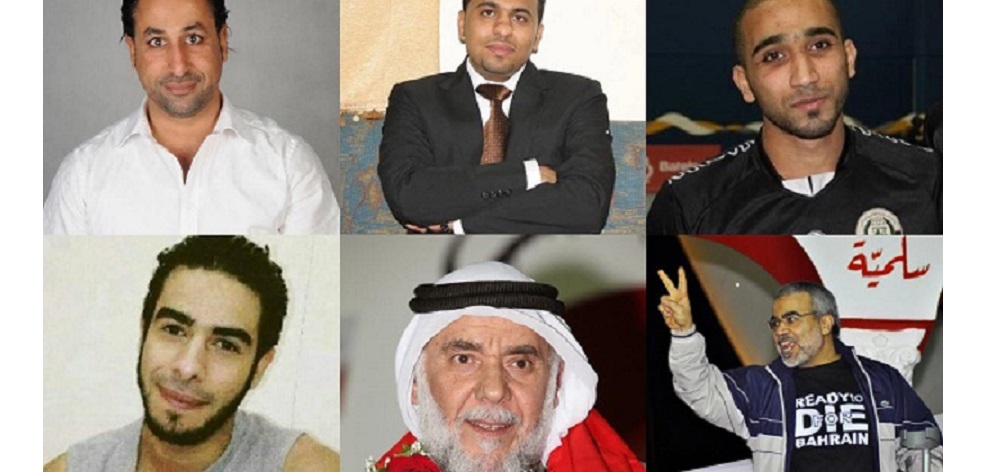Alwaght- In response to the COVID-19 pandemic across the world, governments introduced quarantine regimes and closed down crowded public places in a bid to reduce the fatalities.
Meanwhile, prisoners as a spectrum of citizens are at risk as they are kept in confined prison conditions. In prisons, where there is no way the social distancing can be implemented properly and in accordance with the guidelines of the World Health Organization, people are more than in any other place are at risk as the special conditions increase their vulnerability to the coronavirus.
These threats to the prisoners’ health motivated the UN High Commissioner for Human Rights to urge the governments to release them.
Although large number of prisoners in many countries were freed to reduce the pandemic fatalities, the Al Khalifa regime in Bahrain refused to take similar steps to the frustration of the rights groups and the families of the prisoners. The tiny Arab kingdom has so far confirmed 1,895 people tested positive for COVID-19 pandemic, as it said that 7 died of the disease.
Legal organizations and prominent political figures write a protest letter
The Bahraini regime’s failure to show commitment to the principles of human rights and show responsibility to the demands of the UN human rights commission to protect the prisoners aroused the ire of the political figures, NGOs, and rights organizations towards Manama’s repressive and stubborn approach.
On Sunday, 67 rights and legal organizations in a joint statement asked Bahrain’s officials to affirmatively respond to the UN High Commissioner for Human Rights and immediately free political prisoners. The statement said that the Bahraini government should put the release of the political prisoners as part of its agenda to fight the coronavirus as the prisons are among the places of high risk for those inside. In the densely populated detention centers it is difficult to meet the standards of the WHO that are designed to check the pandemic. Official reports suggest that prisons in Bahrain has the challenge of congestion.
In their statement, the rights organizations referred to the Bahraini security officials’ deprivation of the prisoners of treatment as a torture trick. The consequence of this action is the downfall of the levels of healthcare in the prisons to the lowest level. They warned that such a situation could result in a disaster.
Lynn Maalouf, the Amnesty International’s Middle Ease Research director, said: “Authorities must now speedily release those who never should have been in jail in the first place, namely all prisoners of conscience who remain detained solely for peacefully exercising their right to freedom of expression and other human rights.”
Sheikh Ali Salman, the Secretary-General of Al-Wefaq National Islamic Society as well as rights activists Nazar al-Wadee, Nabil Rajab, and Naji Fatil are among the political prisoners whom the Amnesty International called for their immediate and unconditional release from prison.
Ahmad al-Wadee, the director of London-based Bahrain Center for Human Rights, is among those over the past few days warned against the situation of the prisoners in Bahrain. He said: “coronavirus spreads in Bahrain’s overcrowded prisons would have disastrous consequences.
On April 14, Ayatollah Sheikh Isa Qassem, the spiritual leader of the Bahrain’s uprising, in a statement warned that the potential spread of the virus in the prisons rings the alerts for the lives of thousands of political prisoners. He called for an initiative to release this category of prisoners. “There is no excuse to keep these people in prison,” he asserted.
Hussain al-Daihi, the deputy secretary-general of Al-Wefaq, echoed Ayatollah Qassem’s statement, saying that the prisoners must be released for their lives to be saved as many governments in other countries did. Social media users inside and outside the small Persian Gulf island kingdom launched a campaign calling for the political prisoners to be released.
Bad prison conditions and doubled challenges for security prisoners
The concerns about possible exploitation of the coronavirus crisis by Al Khalifa regime to build pressures on the political prisoners and protestors in the upcoming weeks and months and even intentional abandoning of healthcare and concealing the reality about the situation of prisons come while the hygiene and security conditions in the detention centers are already improper. Before the outbreak of COVID-19, there were reports about the outbreak of contagious diseases in the prisons. Jau Prison as the biggest prison in the country and Al-Hawdh al-Jaf detention center from December through January witnessed the outbreak of Scabies infectious disease. About half of the prisoners of the two prisons were infected, reports said.
Over the past few days, some prisoners tried to leak part of the realities of the prison conditions to the outside world and media. Abdullah Habib Sawar, Reuters reported, is one of these prisoners who is behind the bars of a cell along with 14 inmates.
He told Reuters that congestion of political prisoners cells invites for worries about coronavirus spread. “All are afraid,” he further told the news agency.
According to the report, the political prisoners in Jau Prison are held in cells that can accommodate only 8 people and are special for security prisoners. The report further said that Bahrain like other regional countries freed the risked prisoners. But security prisoners were not among the freed 1,500.
Despite pressures from the rights organizations, the Western governments that claim to be patrons to human rights kept silent regarding violation of rights of Bahraini political prisoners. On Tuesday, Trump had a phone conversation with King Hamad bi Isa Al Khalifa in which he lauded Manama’s measures to control the pandemic but did not raise the case of political prisoners. This promotes the notion that Bahrain's regime continues to shrug off the criticism on the strength of political support from the West.



























